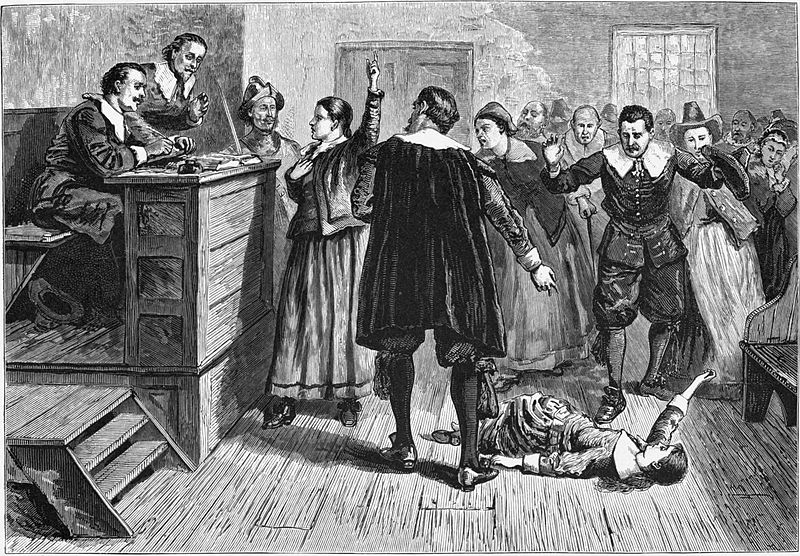Did Cold Weather Cause the Salem Witch Trials?

Historical records indicate that, worldwide, witch hunts occur more often during cold periods, possibly because people look for scapegoats to blame for crop failures and general economic hardship. Fitting the pattern, scholars argue that cold weather may have spurred the infamous Salem witch trials in 1692.
The theory, first laid out by the economist Emily Oster in her senior thesis at Harvard University eight years ago, holds that the most active era of witchcraft trials in Europe coincided with a 400- year period of lower-than-average temperature known to climatologists as the "little ice age."Oster, now an associate professor of economics at the University of Chicago, showed that as the climate varied from year to year during this cold period, lower temperatures correlated with higher numbers of witchcraft accusations.
The correlation may not be surprising, Oster argued, in light of textual evidence from the period: popes and scholars alike clearly believed witches were capable of controlling the weather, and therefore, crippling food production.
The Salem witch trials fell within an extreme cold spell that lasted from 1680 and 1730 — one of the chilliest segments of the little ice age. The notion that weather may have instigated those trials is being revived by Salem State University historian Tad Baker in his forthcoming book, "A Storm of Witchcraft" (Oxford University Press, 2013). Building on Oster's thesis, Baker has found clues in diaries and sermons that suggest a harsh New England winter really may have set the stage for accusations of witchcraft.
According to the Salem News, one clue is a document that mentions a key player in the Salem drama, Rev. Samuel Parris, whose daughter Betty was the first to become ill in the winter of 1691-1692 because of supposed witchcraft. In that document, "Rev. Parris is arguing with his parish over the wood supply," Baker said. A winter fuel shortage would have made for a fairly miserable colonial home, and "the higher the misery quotient, the more likely you are to be seeing witches."
Psychology obviously played an important role in the Salem events; the young girls who accused their fellow townsfolk of witchcraft are believed to have been suffering from a strange psychological condition known as mass hysteria. However, the new theory suggests the hysteria may have sprung from dire economic conditions. "The witchcraft trials suggest that even when considering events and circumstances thought to be psychological or cultural, key underlying motivations can be closely related to economic circumstances," Oster wrote.
Weather patterns continue to trigger witchcraft accusations in many parts of Africa, where witch killings persist. According to a 2003 analysis by the Berkeley economist Edward Miguel, extreme rainfall — either too much or too little — coincides with a significant increase in the number of witch killings in Tanzania. The victim is typically the oldest woman in a household, killed by her own family.
Sign up for the Live Science daily newsletter now
Get the world’s most fascinating discoveries delivered straight to your inbox.
Follow Natalie Wolchover on Twitter @nattyover. Follow Life's Little Mysteries on Twitter @llmysteries and join us on Facebook.
Natalie Wolchover was a staff writer for Live Science from 2010 to 2012 and is currently a senior physics writer and editor for Quanta Magazine. She holds a bachelor's degree in physics from Tufts University and has studied physics at the University of California, Berkeley. Along with the staff of Quanta, Wolchover won the 2022 Pulitzer Prize for explanatory writing for her work on the building of the James Webb Space Telescope. Her work has also appeared in the The Best American Science and Nature Writing and The Best Writing on Mathematics, Nature, The New Yorker and Popular Science. She was the 2016 winner of the Evert Clark/Seth Payne Award, an annual prize for young science journalists, as well as the winner of the 2017 Science Communication Award for the American Institute of Physics.











